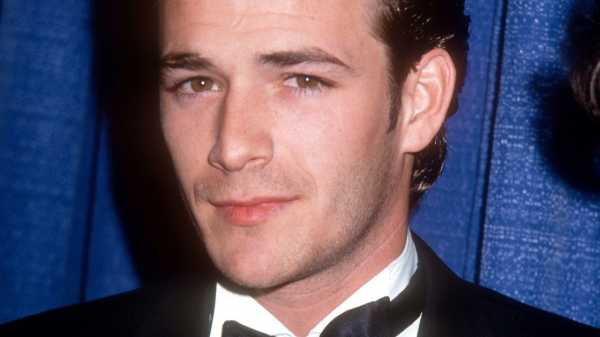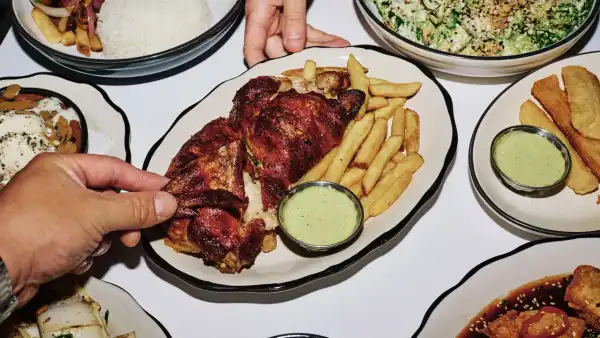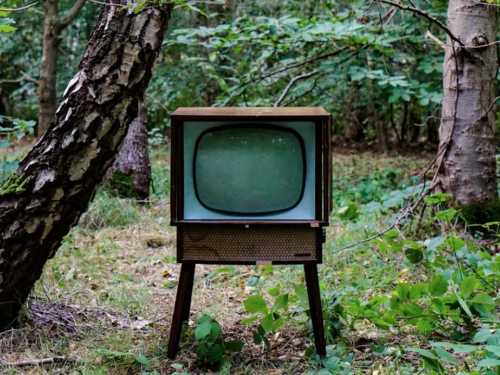
On Monday afternoon, as I was perusing my Instagram feed in the usual slack-jawed half-daze, I came across an image that I hadn’t seen in something like a decade, but that nonetheless hit me, mid-scroll, with a potent sense of recognition. The black-and-white Annie Leibovitz portrait, which had served, in 1992, as a magazine ad for the Gap, featured the actor Luke Perry. In the image, Perry posed in a denim vest, its collar popped, its front tabs slightly open to reveal a coyly shadowed bare chest. Beneath his nineties-style pompadour, his furrowed brow expressed the skeptical melancholy familiar to anyone who knew him in the role of Dylan McKay—the rich, troubled, but still essentially decent lady-killer—which he famously played between 1990 and 1995, and then again from 1998 to 2000, on the Fox teen drama “Beverly Hills, 90210.” In lieu of a caption, the friend who posted the picture on her account added the emoji of a broken heart: our era’s shorthand, when accompanying an image of a beloved celebrity, for that celebrity’s untimely passing. Perry had just died, at fifty-two, of a stroke. As I learned this, my heart plummeted.
I was, at first, a little surprised at the strength of my own feelings. I hadn’t kept up too closely with Perry in the last two decades. I knew about his doings generally, ambiently; since “90210” ended, he had taken on occasional roles, mostly on television, none of them as epochal as Dylan—a role that earned him tremendous recognition and adoration, the kind anointed with a “Simpsons” cameo. (In 1993, Perry portrayed Krusty the Clown’s estranged half brother, Sideshow Luke Perry.) Starting in 2017, he had been experiencing something of a comeback, playing Mr. Andrews, Archie’s father, on the comic-book-based teen drama “Riverdale.” I wasn’t a “Riverdale” viewer, but I remember feeling pleased when I heard of Perry’s recent success and glad that he was on TV in a more permanent capacity, this time as the middle-aged dad rather than the heartthrob son. Younger Gen Xers and older millennials had grown up with Perry as the object of their teen desires, and there was something satisfyingly circle-of-life-like about the actor ceding center stage to a new generation of stars, to be lusted after by a new generation of viewers.
On “90210,” Perry had played the role of Dylan lightly, as if he both meant it and didn’t. His narrow face and even narrower sideburns, his slightly high, slightly nasal voice, his hooded eyes and rolled-up short-sleeved white tees, his convertible and his motorcycle and his surfboard, suggested a pastiche of, as well as a tribute to, the figure of the West Coast rebel. We often like to make fun of the mainstreaming of subcultures—we love to spoof our own mall-goth or pop-punk or nu-metal phases, just as, perhaps, today’s teens will one day spoof their SoundCloud-rap years—but I think there is enormous value in the introduction of slightly left-of-center tropes through the body of hugely popular figures. Dylan was certainly a poser, but he was also, somehow, for real. When, in the second episode of “90210,” he told the Midwestern innocent Brandon Walsh that he was, like Lord Byron, “mad, bad, and dangerous to know,” something new clicked open in my fourteen-year-old brain, to reveal strange and mysterious possibilities. And, of course, the sexual element here was important, too. Like several of the other actors on “90210,” Perry was already in his twenties when the show premièred—a little too old for the role of a teen—but even this worked, giving the character a crucial carnality. When, on the show’s first season, Dylan slept with Brenda Walsh, Brandon’s twin, after the spring dance, it gently introduced viewers, male and female both, to a powerful new fantasy.
Unlike some of his other “90210” co-stars, Perry hadn’t taken part in that series’ reboot, in 2008, and I recall feeling, at the time, that this was the dignified choice. He was, by all accounts, a nice, humble guy, a family man who somehow seemed able to withstand the more pernicious aspects of early fame and its subsequent diminishment. He was never a has-been because he never seemed to try to recapture a role that he had outgrown. By resisting a repeat of his heyday, he appeared to grasp what an important part he had played in culture—to know what he had meant to so many, at a very particular time and place. People have been saying that Perry died too young, and they are right, of course. But what I also heard, in their voices as well as my own, was the realization that something of our younger selves—small and foolish and dear—had gone with Perry, too.
Sourse: newyorker.com






